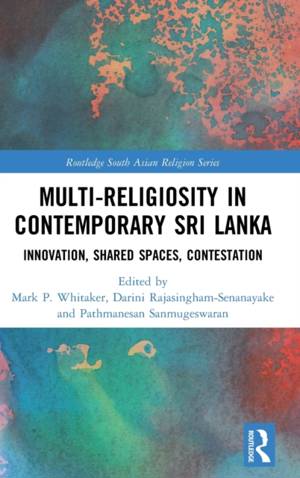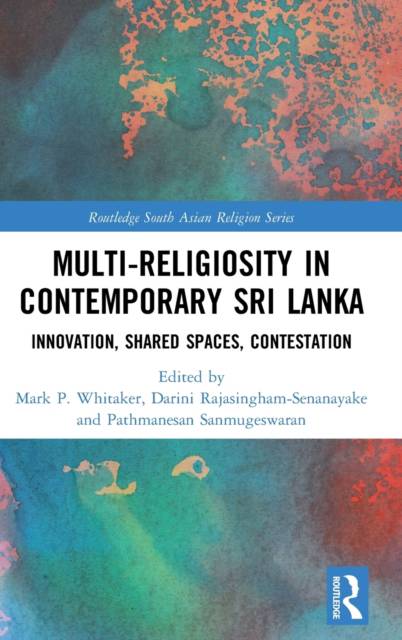
- Afhalen na 1 uur in een winkel met voorraad
- Gratis thuislevering in België
- Ruim aanbod met 7 miljoen producten
- Afhalen na 1 uur in een winkel met voorraad
- Gratis thuislevering in België
- Ruim aanbod met 7 miljoen producten
Multi-religiosity in Contemporary Sri Lanka
Innovation, Shared Spaces, Contestations
Omschrijving
This book presents a collection of original research about every day, innovative, interactive, and multiple religiosities among Sri Lankan Buddhists, Hindus, Muslims, Christians, and devotees of New Religious Movements in post-war Sri Lanka.
The contributors examine the unique and innovative religiosity that can be observed in Sri Lanka, which reveals a complex reality of mingled, and even simultaneous, cooperation and conflict. The book shows that innovative religious practices and institutions have achieved a new prominence in public life since the end of Sri Lanka's civil war in 2009. Using the analytic framework of 'innovative religiosity' to allow researchers to look at this question between and across Sri Lanka's plural religious landscape in order to escape both the epistemological and ethnographic isolation of studies that limit themselves to one form of religious practice, the chapters also investigate the extent to which inter-religious tolerance is still possible in the wake of Sri Lanka's religion-involving civil war, and the continuing influence of populist Buddhist nationalism, globalization and geopolitics on Sri Lanka's post-war governance. The book offers a novel approach to the study of post-conflict societies and furthers the understanding of the status of tolerance between religious practitioners in contexts where both ethnic conflict and multi-religious sites are prominent.
This book is an important resource for researchers studying Anthropology, Asian Religion, Religion in Context and South Asian Studies.
Specificaties
Betrokkenen
- Uitgeverij:
Inhoud
- Aantal bladzijden:
- 268
- Taal:
- Engels
- Reeks:
Eigenschappen
- Productcode (EAN):
- 9780367862343
- Verschijningsdatum:
- 27/09/2021
- Uitvoering:
- Hardcover
- Formaat:
- Genaaid
- Afmetingen:
- 156 mm x 234 mm
- Gewicht:
- 576 g

Alleen bij Standaard Boekhandel
Beoordelingen
We publiceren alleen reviews die voldoen aan de voorwaarden voor reviews. Bekijk onze voorwaarden voor reviews.











